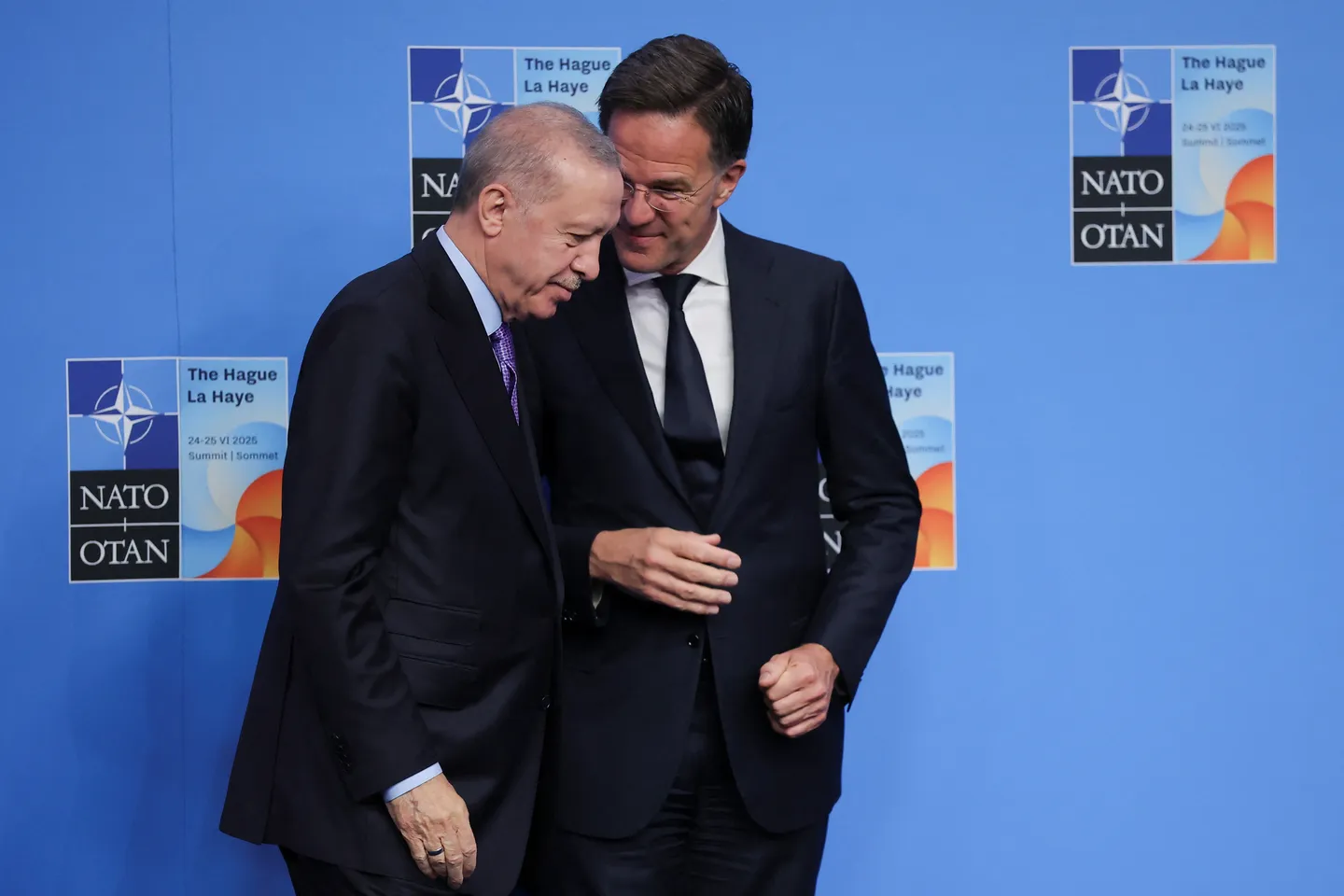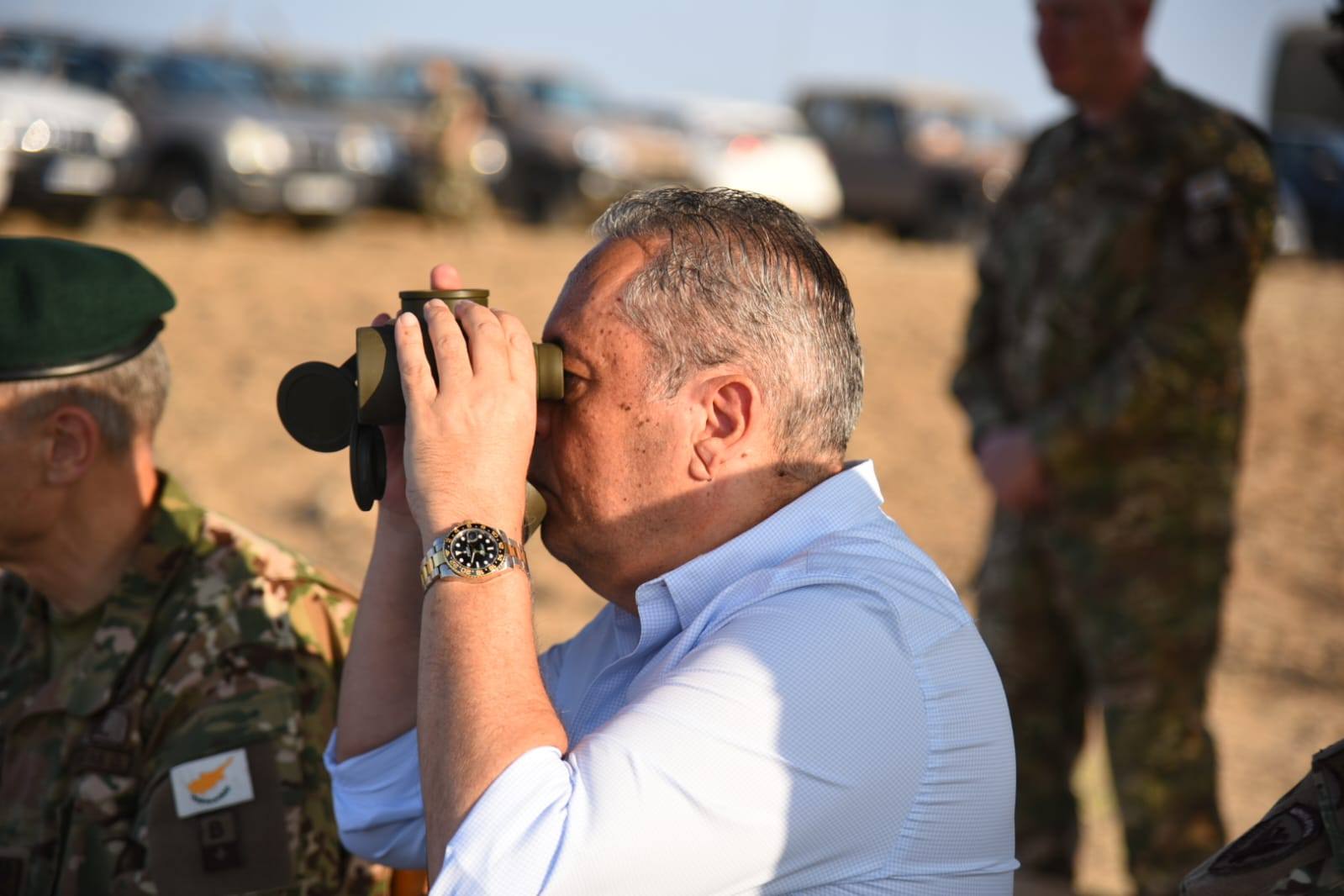“States which pose a threat to European Union member states” cannot join the European Union’s Security Action for Europe (Safe) defence procurement programme, Defence Minister Vasilis Palmas said on Sunday.
Speaking after a church service in the Paphos district village of Kelokedara, he referred to statements made by European Council president Antonio Costa during a visit to the island last month, in which he had said the Safe programme’s rules are “clear”.
Costa had added at the time that the programme is “open to third countries, but to third countries which do not constitute a threat to the security of any member state”.
“The position of European Council president Antonio Costa is very clear, that states which pose a threat to EU member states cannot participate in the Safe mechanism. Therefore, this position in itself, with absolute clarity, does not require any other interpretation than what Antonio Costa said,” Palmas said on Sunday.
However, reports in Greece indicate that some in the EU are pushing for Turkey to be allowed to participate in the programme, with newspaper Kathimerini having reported on Saturday that German Foreign Minister Johann Wadephul will use his visit to Greece on Monday to attempt to persuade Greece to allow Turkey to participate in the mechanism.
The newspaper wrote that Greek Prime Minister Kyriakos Mitsotakis had met both German Chancellor Friedrich Merz and Nato secretary-general Mark Rutte on the sidelines of the European Political Community summit in Copenhagen earlier this month, and that the “central issue” of those meetings was “the unblocking of Turkey’s participation in Safe”.
Turkey formally filed a request to join the programme last month.
President Nikos Christodoulides also met Rutte in Copenhagen, and said after that meeting that he had discussed “the participation of Nato member states” in the Safe mechanism.
“I reiterated the common position of the European Union that Nato member states which violate the sovereignty [and] territorial integrity of [EU] member states cannot in any way benefit from this tool,” he said.
“More specifically, as regards Turkey, it is up to Turkey, if it wants to participate in this very important instrument. The condition is that there be positive specific developments on the Cyprus issue, and it is up to Turkey to take these steps.”
At the same time, he said that in any future cooperation between the EU and Nato, there must be “no restrictions for any of the 27 member states of the European Union”.
Last month, Kathimerini had reported that Rutte had “signalled support” for Turkish participation in the programme during a meeting with EU ambassadors, arguing that “engagement” between the EU and Turkey “is essential for stronger Nato cooperation”.
Exactly 23 of the EU’s 27 members are also Nato members.
Palmas had said at the time that the government “expected such pressure from Nato to give Turkey the opportunity through Safe to strengthen itself”.
However, he said, Cyprus’ opposition to Turkey’s joining of the programme has been “expressed with one mouth and one voice” alongside Greece and its defence minister Nikos Dendias.
This, he said, has been going on “for at least a year in all of the European Union’s defence councils”.
“We emphasised the fact that we are not against third states from the international community being able to participate through other European states in these programmes, provided that they do not pose a danger to member states or to the Union,” he said.
However, he said, “in this case, Turkey is a state which has been established in Cyprus as an invader for 51 years and at the same time threatens Greece itself daily in the Aegean and in the Greek islands”.

On Sunday, Palmas also spoke about the status of Cyprus’ participation in the programme, with the government having secured over €1 billion of funding for military hardware through the Safe programme.
He pointed out that all participating states have been given a deadline of November 30 “to submit the list of armament programmes which interest us”, and that then “within a five-year horizon”, the government will be able to “exhaust this amount with all the armaments which we consider useful”.
In addition to Cyprus, 18 other EU member states are also in line to receive funding as part of the €150bn allocated by the commission to the programme earlier this year.
The Safe programme is open to all 27 EU member states, as well as the four European Economic Area States – Iceland, Liechtenstein, Norway and Switzerland – and Ukraine, as well as six other countries which have signed common defence agreements with the EU – Albania, Japan, Moldova, North Macedonia, South Korea, and the United Kingdom.
Turkey would be eligible to sign an agreement similar to that of the UK with the EU and gain access to the Safe programme, but defence agreements require unanimity among EU member states.






Click here to change your cookie preferences